
INTRODUCTION
I believe when life gives you lemons, you should make lemonade and try to find someone whose life has given them vodka, and have a party. Ron White, comedian

HISTORY
The first citrus trees grew millions of years ago, and it is thought that there were originally three varieties, mandarin, citron and pomelo, from which all modern citrus fruit, including lemons, derive. The lemon is most closely related to the citron, which probably originated in the Punjab region of India and Pakistan, and from there spread via trading routes to the Middle East excavations from Mesopotamia have revealed seeds dating to 4,000 BC. The citron travelled further west, arriving in the classical world probably by the 5th century BC, although it is difficult to trace its exact route. The word citron later came to refer to any type of citrus fruit, so references in ancient texts are ambiguous. The Romans called the citron
malum medicum. Virgil writes in the
Georgics that the fruit came from Media (ancient Iran), and calls it the happy citron fruit, noting that it is used to chase black venom from the body an early recognition of its antiseptic properties. Indeed the ancient Romans used the citron primarily for medicinal purposes.
It was believed that it cured all manner of complaints including snakebite, digestive problems and seasickness. The natural historian Pliny writes that the seeds were used as a breath freshener and it is said that the Emperor Nero consumed citrons to protect himself from poisoning attempts. The Greek philosopher and botanist Theophrastus wrote that the citron was not edible, but had an exquisite smell. The rind was used for flavouring, and the oil it contained was considered a luxury cosmetic, but the flesh was discarded as inedible.  The modern lemon is thought to be a cross between the ancient citron and either a kind of sour orange or the mandarin. The earliest references to the modern form of lemon appear in Arabic writings of the 11th century AD.
The modern lemon is thought to be a cross between the ancient citron and either a kind of sour orange or the mandarin. The earliest references to the modern form of lemon appear in Arabic writings of the 11th century AD.
It is certain that the Arabs introduced the lemon to Europe in the 11th and 12th centuries. The Islamic world was enjoying a golden age at this time and was a major influence on Europe, with ideas in mathematics, art and science being adopted as well as new foodstuffs. The Crusaders bought lemons home to England with them from the Holy Land, and from the 14th century onwards they began to be a familiar item in well-to-do kitchens. Lemons were being cultivated in Genoa, Italy, by the mid-15th century, and Columbus took lemon seeds with him on his second expedition to the New World in 1493, planting groves in Haiti and the Dominican Republic. The subsequent arrival of missionaries and explorers ensured the spread of the lemon throughout the Americas. As traders and colonisers crossed the globe during the 17th and 18th centuries the lemon went with them, particularly once it was used as a defence against scurvy.
The First Fleet sent from Britain to Australia in 1787 took lemon trees with them for the new settlers to plant. By the 19th century lemons were being imported into England from across Europe, and were also being grown in hothouses. Once a luxury commodity, the lemon is now a familiar common and central part of our diet, and is appreciated for its taste as well as its health benefits in a wide range of recipes.  HEALTH BENEFITS Lemons have been used in medicine for thousands of years as their health benefits have long been understood. The most well-known medicinal element of lemons is their high Vitamin C content, which has long made them a central ingredient in cold and flu remedies. Vitamin C is an antioxidant, and lemons also contain flavonoids together these fight infection and neutralise free radicals which cause disease and ageing. The powerful antibacterial properties of lemons can destroy bacteria and purify the blood, thus helping to fight diseases such as malaria and cholera.
HEALTH BENEFITS Lemons have been used in medicine for thousands of years as their health benefits have long been understood. The most well-known medicinal element of lemons is their high Vitamin C content, which has long made them a central ingredient in cold and flu remedies. Vitamin C is an antioxidant, and lemons also contain flavonoids together these fight infection and neutralise free radicals which cause disease and ageing. The powerful antibacterial properties of lemons can destroy bacteria and purify the blood, thus helping to fight diseases such as malaria and cholera.
The citric acid is good for cleansing the digestive system a glass of hot water with lemon in helps your liver flush away toxins more effectively, and improves bowel movements. It has also been suggested that lemon juice can dissolve kidney stones by removing the uric acid that causes them. The lutein in lemons is good for preventing macular degeneration and cataracts in eyes, and promotes good skin. Eye and skin health and the immune system are also boosted by the presence of Vitamin A and rutin, which also helps regulate blood pressure. Lemons contain several anti-carcinogenic compounds including limonene which has been shown to be highly effective in fighting cancer. Limonene has also been used in the treatment of gallstones.
Lemons contain a range of minerals including iron and copper, both essential for red blood cell production, to keep your body oxygenated. Other minerals include magnesium and calcium which help with bone health. Potassium fights depression and aids digestion, and folate aids good heart health. Lemons are high in a healthy soluble fibre called pectin, which is good for lowering blood sugar.  Lemons are used in natural medicine for a huge range of treatments for toothache, halitosis, soothing insect stings, for corns, and much more. There seems to be no end to the benefits of this mighty fruit!
Lemons are used in natural medicine for a huge range of treatments for toothache, halitosis, soothing insect stings, for corns, and much more. There seems to be no end to the benefits of this mighty fruit!

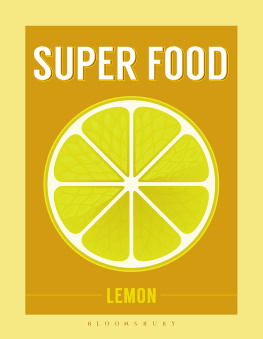





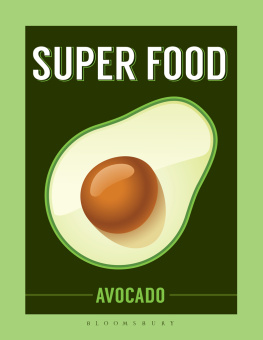
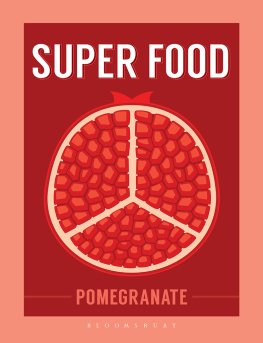
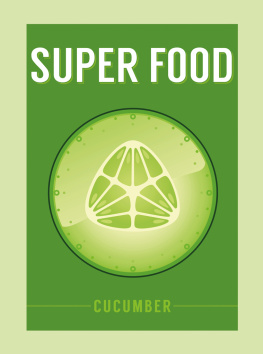
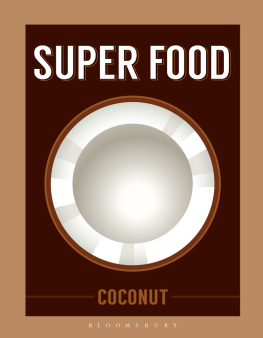


 CONTENTS
CONTENTS
 INTRODUCTION I believe when life gives you lemons, you should make lemonade and try to find someone whose life has given them vodka, and have a party. Ron White, comedian
INTRODUCTION I believe when life gives you lemons, you should make lemonade and try to find someone whose life has given them vodka, and have a party. Ron White, comedian  HISTORY The first citrus trees grew millions of years ago, and it is thought that there were originally three varieties, mandarin, citron and pomelo, from which all modern citrus fruit, including lemons, derive. The lemon is most closely related to the citron, which probably originated in the Punjab region of India and Pakistan, and from there spread via trading routes to the Middle East excavations from Mesopotamia have revealed seeds dating to 4,000 BC. The citron travelled further west, arriving in the classical world probably by the 5th century BC, although it is difficult to trace its exact route. The word citron later came to refer to any type of citrus fruit, so references in ancient texts are ambiguous. The Romans called the citron malum medicum. Virgil writes in the Georgics that the fruit came from Media (ancient Iran), and calls it the happy citron fruit, noting that it is used to chase black venom from the body an early recognition of its antiseptic properties. Indeed the ancient Romans used the citron primarily for medicinal purposes.
HISTORY The first citrus trees grew millions of years ago, and it is thought that there were originally three varieties, mandarin, citron and pomelo, from which all modern citrus fruit, including lemons, derive. The lemon is most closely related to the citron, which probably originated in the Punjab region of India and Pakistan, and from there spread via trading routes to the Middle East excavations from Mesopotamia have revealed seeds dating to 4,000 BC. The citron travelled further west, arriving in the classical world probably by the 5th century BC, although it is difficult to trace its exact route. The word citron later came to refer to any type of citrus fruit, so references in ancient texts are ambiguous. The Romans called the citron malum medicum. Virgil writes in the Georgics that the fruit came from Media (ancient Iran), and calls it the happy citron fruit, noting that it is used to chase black venom from the body an early recognition of its antiseptic properties. Indeed the ancient Romans used the citron primarily for medicinal purposes.  The modern lemon is thought to be a cross between the ancient citron and either a kind of sour orange or the mandarin. The earliest references to the modern form of lemon appear in Arabic writings of the 11th century AD.
The modern lemon is thought to be a cross between the ancient citron and either a kind of sour orange or the mandarin. The earliest references to the modern form of lemon appear in Arabic writings of the 11th century AD. HEALTH BENEFITS Lemons have been used in medicine for thousands of years as their health benefits have long been understood. The most well-known medicinal element of lemons is their high Vitamin C content, which has long made them a central ingredient in cold and flu remedies. Vitamin C is an antioxidant, and lemons also contain flavonoids together these fight infection and neutralise free radicals which cause disease and ageing. The powerful antibacterial properties of lemons can destroy bacteria and purify the blood, thus helping to fight diseases such as malaria and cholera.
HEALTH BENEFITS Lemons have been used in medicine for thousands of years as their health benefits have long been understood. The most well-known medicinal element of lemons is their high Vitamin C content, which has long made them a central ingredient in cold and flu remedies. Vitamin C is an antioxidant, and lemons also contain flavonoids together these fight infection and neutralise free radicals which cause disease and ageing. The powerful antibacterial properties of lemons can destroy bacteria and purify the blood, thus helping to fight diseases such as malaria and cholera. Lemons are used in natural medicine for a huge range of treatments for toothache, halitosis, soothing insect stings, for corns, and much more. There seems to be no end to the benefits of this mighty fruit!
Lemons are used in natural medicine for a huge range of treatments for toothache, halitosis, soothing insect stings, for corns, and much more. There seems to be no end to the benefits of this mighty fruit! SERVES: PREPARATION: 5 MINUTES PEAR, BERRY & HONEY
SERVES: PREPARATION: 5 MINUTES PEAR, BERRY & HONEY 

 INGREDIENTS juice of 1 lemon 1 pear, peeled and cored a handful of berries (you can use frozen ones) 2 tbsp honey 100ml water The zesty lemon is sweetened with pear and honey in this smoothie bursting with antioxidants. Blend all the ingredients together, adding more honey if you need to. BANANA, YOGHURT & CASHEW NUT
INGREDIENTS juice of 1 lemon 1 pear, peeled and cored a handful of berries (you can use frozen ones) 2 tbsp honey 100ml water The zesty lemon is sweetened with pear and honey in this smoothie bursting with antioxidants. Blend all the ingredients together, adding more honey if you need to. BANANA, YOGHURT & CASHEW NUT